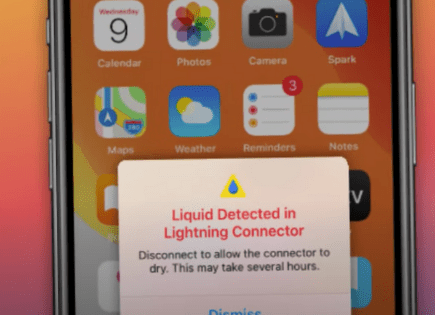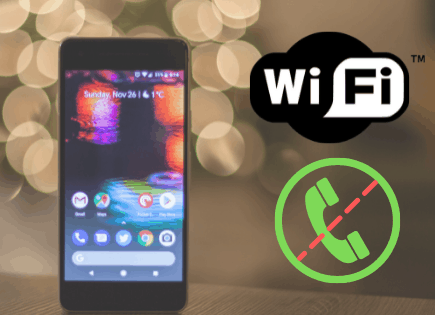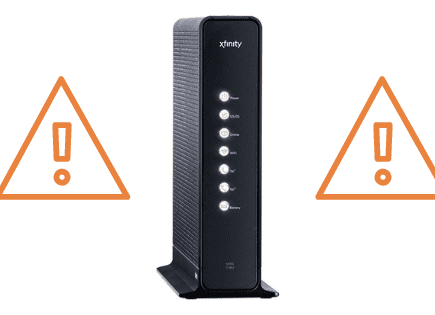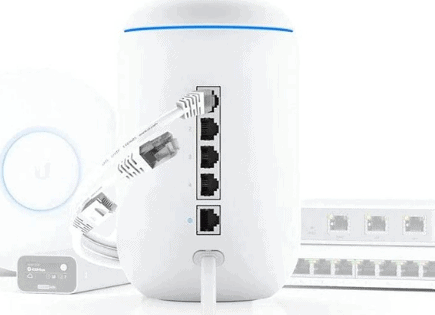
All Circuits Are Busy (What It Means & How to Fix It!)
Whether you’re placing a phone call through Verizon, AT&T, Sprint, or T-Mobile, you may hear or receive an error message saying, “all circuits are busy,” just before your call automatically disconnects.
“All circuits are busy” means all the outgoing connections of your phone network are unavailable. It may occur from dialing the wrong number, poor network coverage, system network overload, or service outage. Fix this issue by restarting your handset, changing location, or removing/reinstalling your sim card to restore network settings.
In this post, I’ll discuss what “all circuits are busy” is really all about and how you can go about fixing it.
 Quick Summary
Quick Summary
"All circuits are busy" means no outgoing calls can be made due to full network capacity. It can occur due to wrong number, poor coverage, network overload or service outage. Solutions include restarting your phone, relocating, or removing and reinstalling your sim card. Other causes are anonymous call blocking, scarce resources, and handset damage. As alternatives, wait before calling again, use a different phone or number, or request more network resources from your provider.
What Does “All Circuits Are Busy” Mean?
“All circuits are busy” messages are not uncommon. You may experience this issue at some point, even if your phone carrier has the strongest network coverage in the country.
This error message means you cannot complete your call due to connection issues. It occurs if there are no free outgoing lines as your phone carrier has probably reached maximum capacity.
Essentially, your phone carrier has limited phone lines available that can support multiple callers at a particular time.
Cell phones do not use wires for voice and data transmission. Instead, they use radio waves to transfer signals between a caller and a recipient.
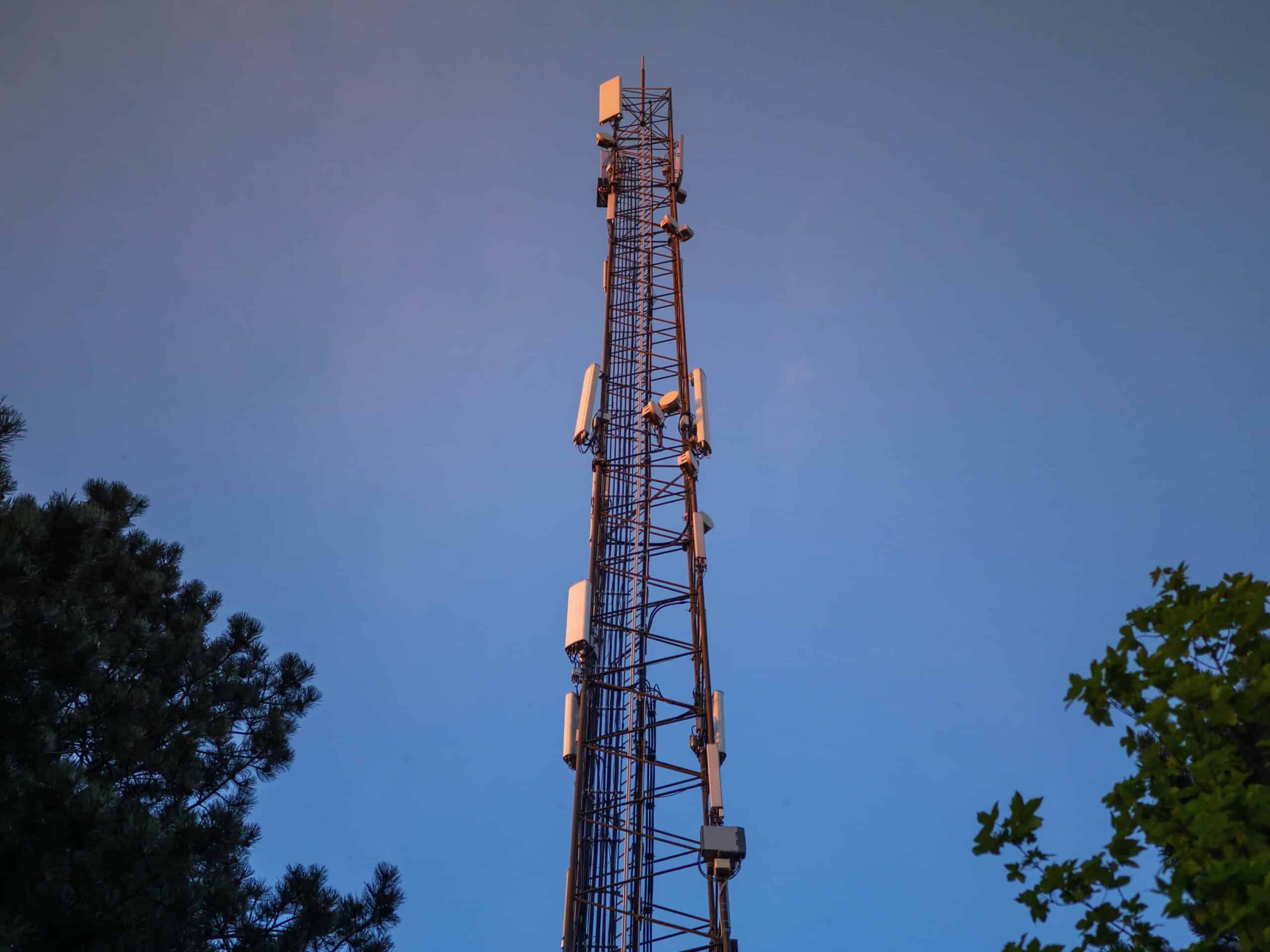
When placing a call, your phone will scan for the nearest network tower and check signal strength and available connections.
Your phone will then send an origination message in the background with your Mobile Identification Number and Electronic Serial Number to your service provider for verification.
After verification, your service provider will send back a channel assignment message to your phone. Your phone will then connect to the assigned channel to complete the call. If no free channels are available, you will receive an “all circuits are busy” message.
All the above processes happen in micro milliseconds, so you will never experience any delays.
Why You’re Getting “All Circuits Are Busy” Message
1. No free outgoing connections
The main reason you are getting an “all circuits are busy” error message is that there are no free outgoing lines available at a particular moment.
This problem usually happens within small, local areas with limited network towers and phone lines available.
As you already know, your phone carrier has to assign your number a free channel to complete a connection whenever you are trying to place a call.
You will get the “all circuits are busy” message if more users are trying to call than the number of available free channels.
Solution: The easiest way to deal with limited outgoing connections is to hang up, wait a few minutes, and try to call another time. After all, a line will free up eventually.
2. Dialing the wrong number
Several outgoing phone lines might be available, but you may still get an “all circuits are busy” error message.
This issue usually arises if you miss a digit and dial the wrong number. It may also occur if you try to call a number on a different network.
Dialing the wrong number is undoubtedly a problem caused on your end.
However, if the issue arises when calling a number on a different network, then the issue is not from you but with the recipient’s service provider.
Solution: If you notice you are dialing the wrong number, simply hang up, rectify the error, and call the correct number. If the problem persists, wait a few minutes before trying again.
Nonetheless, there’s nothing you can do other than wait to see if the error emanates from the recipient’s phone carrier.
3. Poor network coverage
An “all circuits are busy” error can also be a result of poor network coverage.
If the network base station is not receiving signals from your device and vice versa, you won’t be able to connect to available outgoing channels.
Poor network coverage might be on your end or the recipient’s end. This normally happens if you are in a remote area, away from network towers.
It might also be caused by inadequate network equipment in your area. Whatever the case, it will always result in an error message.
Solution: Check the number of signal bars on your handset to determine network strength and coverage. If the bars are too low, consider changing your location and moving closer to a network tower.
4. System network overload
System network overload occurs when multiple subscribers are using all the services at once.
It doesn’t matter whether they are calling, texting, or connected to data, but extreme traffic can overwhelm the system, leading to a network overload.
Network overloads are very common during peak hours and public holidays.
Unless your phone carrier invests in more equipment to support the increasing traffic, you will continue to receive “all circuits are busy” messages whenever you try to place a call.
Solution: In case of a network overload, consider waiting until the traffic subsides before trying your call again. You can call during off-peak hours, although the charges might be a bit higher.
5. Service outage
Many phone carriers promise their customers 100% uninterrupted service. However, downtimes are almost inevitable, and they will most likely happen at some point.
Unforeseen factors like bad weather, infrastructural damage, natural disasters, and old or damaged circuit lines might lead to service outages.
Outages might occur in your home, neighborhood, or entire service areas. If not mitigated promptly, you may receive an “all circuits are busy” error message.
Solution: Start by checking for outages using your phone carrier’s online service troubleshooter, available on their website.
You may also figure out the problem by checking your area for cut cables and damaged infrastructure.
After confirming a service outage exists, immediately contact your phone carrier to fix the problem.
6. Anonymous call blocking
You may receive an “all circuits are busy” error message if the recipient has blocked your number either intentionally or mistakenly.
With the emergence of call-blocking apps, it is now possible to block anonymous callers and spammers from contacting you via telephone.
However, your recipient may end up listing some of their contacts, including your number, deliberately or mistakenly.
These caller ID blocking apps work by triggering a fast busy signal whenever someone tries to place a call, subsequently preventing the call from going through.
Solution: Call your contact using a different number. If the call goes through, ask your contact to check the app settings and unblock your number.
7. Limited available resources
Phone carriers usually invest their resources where most of their customers reside.
After all, they are out to make a profit, and maintaining network infrastructure can be costly if the population of a given area does not guarantee these profits.
If your area has fewer subscribers, the service provider might not allocate sufficient resources there. Obviously, this is not ideal if you live in a small town with a low population.
With lesser available resources, the network coverage will be poor. Consequently, you will receive “all circuits are busy” messages more frequently.
Solution: You may petition your phone carrier to allocate more resources to your area if the number of subscribers increases.
Alternatively, you may have to switch to a different network to enjoy better services.
8. Damaged cell phone
Sometimes your handset might be the problem. You may receive an “all circuits are busy” message if you are using a damaged phone.
All cell phones have an internal antenna that receives and sends network signals. Any physical damage to the phone might impair how the antenna transmits and receives radio frequencies.
Aside from damage, incorrect network configuration may also cause problems when making calls.
Most cell phones come with pre-configured settings, and any slight adjustments might make it impossible to complete calls.
Solution
If the damage was caused by the manufacturer, and the handset is still within warranty, you can take it back for repairs or replacement at no extra cost. Alternatively, you may consider buying a new phone.
For incorrect network configuration, go to phone settings, network & internet, and tap “Reset” to restore them to default settings.
Other Ways to Fix the “All Circuits Are Busy” Error
1. Restart your phone
Perhaps the easiest way to deal with an “all circuits are busy” error is to restart your phone.
Doing so may help restore network strength, and by the time your phone is on, you will find a free outgoing line to complete your call.
2. Remove and reinstall your sim card
Removing and reinstalling your sim can also help restore network coverage. When you reinstall your sim, it will automatically register with your carrier and usually eliminate network issues.
3. Use a different phone or number
In the unlikely event that all the above tips fail to deliver a desirable outcome, you can consider using a different phone or sim to place your calls.
Conclusion
The “all circuits are busy” error message means you cannot complete your call due to connection issues. It occurs for a number of different reasons:
- No free outgoing connections
- Dialing the wrong number
- Poor network coverage
- System network overload
- Service outage
- Anonymous call blocking
- Limited available resources
- Damaged cell phone
Generally speaking, the quickest way to resolve this error is to wait a bit before placing your call again, then restart your phone, remove and reinstall your sim card, and finally use a different phone or number.
I hope you found this article helpful! Good luck and thank you for reading!

